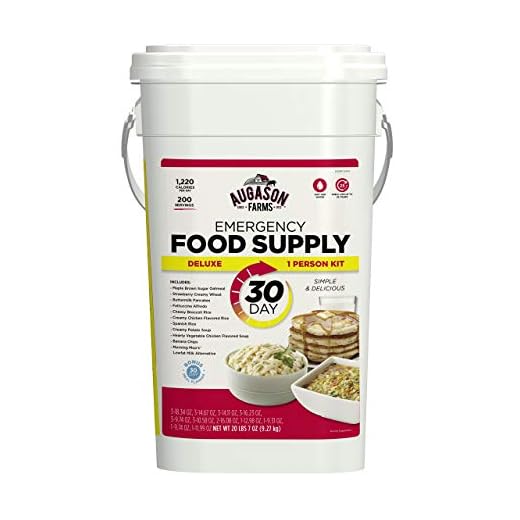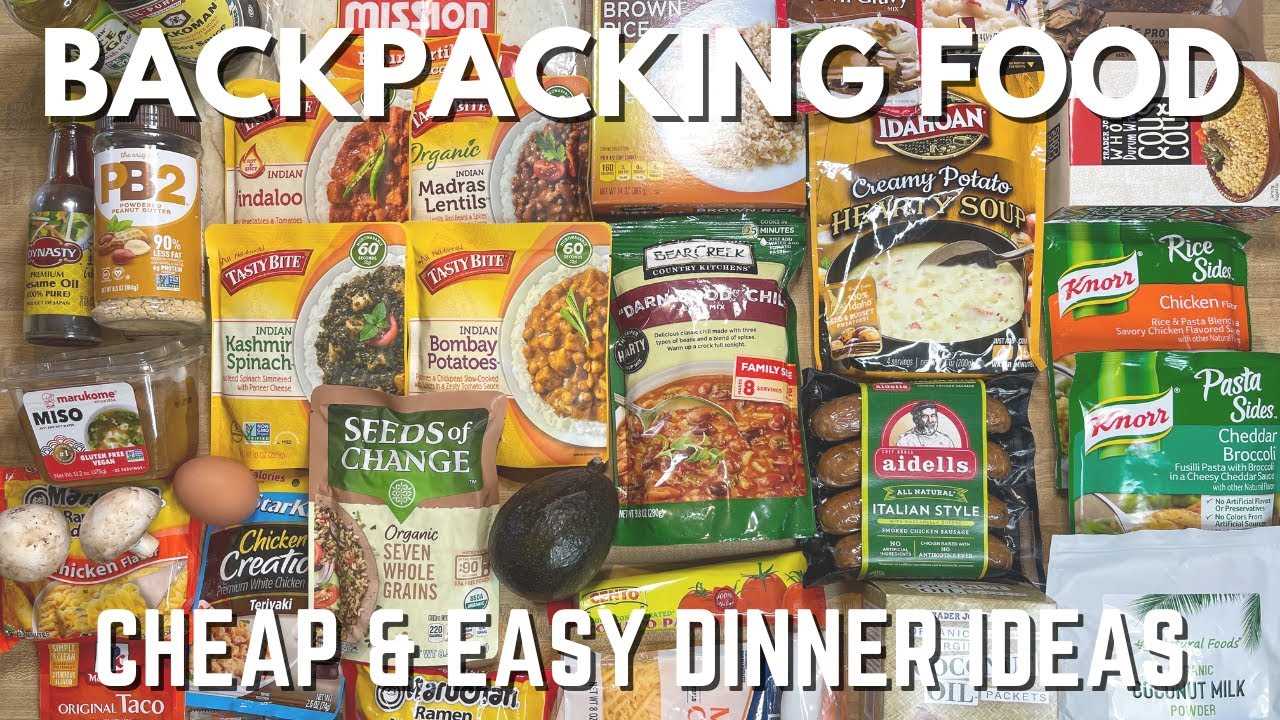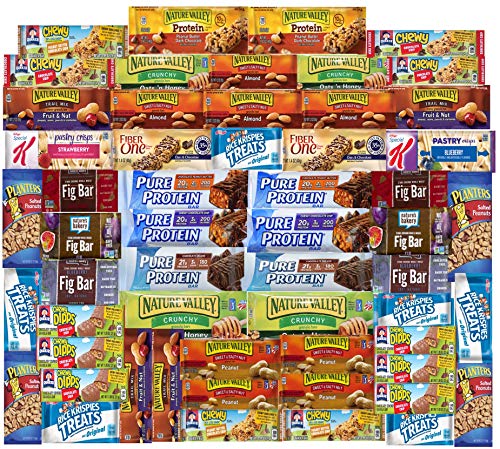




Opt for nut butter packets combined with whole grain crackers for a protein-packed option that’s easy to carry. These snacks provide a satisfying crunch and a burst of energy to keep you going. The combination of healthy fats and carbohydrates fuels your adventures without the bulk of traditional meals.
This article discusses portable meal options perfect for outdoor excursions. It caters to hikers, campers, and anyone looking for convenient yet nutritious choices while on the go. You will discover various snack ideas, including dried fruits, energy bars, and jerky, all designed to meet the needs of active individuals.
In addition to the snack suggestions, I’ll highlight important nutritional aspects to consider, such as calorie density, shelf life, and ease of packing. By the end of this read, you’ll be equipped with valuable insights to make informed choices for your next outdoor trip.
Optimal Choices for Outdoor Nutrition
Dehydrated meals present a practical solution for maintaining energy during outdoor adventures. These meals are lightweight and require only water for preparation, making them convenient for transport. Options include pasta dishes, curries, and stews, which can offer a hearty taste without the bulk.
Snacking is important between meals, and trail mixes are an excellent choice. A combination of nuts, seeds, dried fruits, and perhaps a bit of chocolate can provide both energy and satisfaction. This blend not only fuels the body but also delivers essential nutrients.
Considerations for Meal Planning
When selecting provisions for excursions, consider the following:
- Caloric Density: Foods should provide ample energy without excessive weight.
- Preparation Time: Opt for items that require minimal cooking or are ready to eat.
- Shelf Life: Choose products that can withstand various conditions without spoiling.
Examples of suitable options include:
- Granola bars for a quick snack.
- Instant oatmeal for a warm breakfast.
- Canned fish for protein-packed meals.
For hydration, consider including electrolyte powders or tablets to add to water, ensuring proper hydration levels during physical activities.
| Type | Example | Benefits |
|---|---|---|
| Dehydrated Meals | Vegetable curry | Lightweight, high in nutrients |
| Snacks | Trail mix | Energy-dense, easy to carry |
| Hydration | Electrolyte tablets | Supports hydration and recovery |
Prioritize convenience, taste, and nutritional value to ensure an enjoyable experience outdoors.
Nutritious Snacks for Long Hikes
Opt for energy-dense options that provide sustained fuel during extensive treks. Dried fruits such as apricots, figs, and raisins contribute natural sugars and essential vitamins. Pair them with nuts to increase protein and healthy fats, ensuring a balanced intake.
Incorporate whole grain crackers or rice cakes for complex carbohydrates. These options facilitate a gradual release of energy, keeping stamina high. Consider adding nut butter for extra flavor and nutritional value.
Variety of Choices
- Trail Mix: A blend of nuts, seeds, dried fruits, and dark chocolate offers a mix of nutrients and energy.
- Granola Bars: Look for those with whole ingredients and minimal added sugars.
- Jerky: A good source of protein, select varieties that are low in sodium and additives.
- Vegetable Chips: Opt for baked versions for a lighter snack while still enjoying the crunch.
Maintain hydration alongside these snacks. Carrying electrolyte tablets can assist in replenishing lost minerals during strenuous activities.
Lightweight Meal Options for Adventurers
Freeze-dried meals offer a convenient and nutritious solution for outdoor enthusiasts. These lightweight options can be easily rehydrated with hot water, providing a warm and satisfying dish in minutes. Many brands feature a variety of flavors, from hearty stews to flavorful pastas.
Energy bars are another excellent choice. They pack a punch in terms of calories and nutrients, making them perfect for quick snacks on the go. Look for bars that contain natural ingredients, including nuts, fruits, and whole grains, to ensure sustained energy without the crash.
Nutritious Snacks
- Trail Mix: A combination of nuts, seeds, and dried fruit provides healthy fats and sugars.
- Jerky: High in protein and lightweight, this option is ideal for satisfying hunger.
- Nut Butter Packets: Portable and rich in calories, these can be eaten alone or spread on crackers.
Consider including instant oatmeal packets as well. They’re easy to prepare and can be enhanced with dried fruit or nuts for added flavor and nutrition. This warm breakfast option can fuel a day full of activities.
When planning meals, ensure they are balanced. A mix of carbohydrates, proteins, and fats will sustain energy levels throughout the day. Focus on options that are lightweight yet calorie-dense to maximize nutrition without the bulk.
Energy-Boosting Bar Ideas for Outdoor Activities
Try creating your own energy bars using a mix of nuts, seeds, and dried fruits. These components provide a balance of healthy fats, protein, and carbohydrates, essential for sustaining energy during outdoor adventures. Consider incorporating ingredients like almonds, walnuts, chia seeds, and cranberries for a delicious and nutritious combination.
Another great option is to use oats as a base. Oats not only offer fiber but also help in maintaining energy levels. Combine them with honey or maple syrup for sweetness, and add dark chocolate chips or peanut butter for flavor. This mix can serve as a satisfying and energizing snack while on the move.
Ingredient Combinations to Consider
- Nuts and Seeds: Almonds, walnuts, pumpkin seeds, sunflower seeds.
- Dried Fruits: Raisins, apricots, mango, blueberries.
- Binders: Honey, maple syrup, nut butter.
- Flavor Enhancers: Cinnamon, vanilla extract, cocoa powder.
Experiment with different proportions to find the right balance that suits your taste. A typical recipe might include two cups of oats, one cup of mixed nuts, half a cup of honey, and a cup of dried fruits. Mix well and press the mixture into a baking dish, refrigerate until firm, and then cut into bars.
Storing these homemade energy bars in an airtight container will keep them fresh for your next outing. With the right ingredients, these snacks can help maintain focus and stamina during hikes, bike rides, or any other outdoor activities.
Conclusion
For your next outdoor adventure, prioritize meals that are easy to prepare and require minimal equipment. Focus on options that are nutrient-dense and provide energy for your activities. Simple dishes can greatly enhance your camping experience without adding unnecessary complexity.
Some excellent choices include instant oatmeal, pre-cooked rice or quinoa, and dehydrated meals that only require hot water. These selections not only save time but also reduce the weight of your pack.
Quick Meal Ideas
- Instant oatmeal with dried fruits and nuts
- Pre-cooked rice mixed with canned beans and salsa
- Dehydrated meals (just add water)
- Tortillas filled with nut butter and banana
- Instant soup packets
Prepare these dishes ahead of time or on-site for quick and satisfying meals. Carrying lightweight, easy-to-cook ingredients ensures that you can focus more on enjoying nature and less on meal preparation.
With these suggestions, you can fuel your outdoor excursions effectively while keeping your food planning straightforward.
Best backpack food
Features
| Color | Blue |
| Size | 56 Count (Pack of 1) |
Features
| Part Number | CBLLC_PRTN_BR_70P-A_21.1 |
| Size | 70 PACK |
Features
| Part Number | 160279 |
| Model | 160279 |
| Color | Care Package |
| Is Adult Product | |
| Release Date | 2016-01-25T00:00:01Z |
| Size | 36 Count Variety (Pack of 6) |
| Number Of Pages | 0 |
| Publication Date | 2016-01-28T00:00:01Z |
Features
| Part Number | 5-20091 |
| Model | 5-20091 |
| Warranty | Manufacturer's Warranty |
| Release Date | 2017-07-20T00:00:01Z |
| Size | PAIL |
Video:
FAQ:
What types of food are best for backpacking?
When choosing food for backpacking, it’s important to focus on lightweight, non-perishable items that provide good nutrition. Options include dehydrated meals, energy bars, nuts, dried fruits, jerky, and instant oatmeal. Dehydrated meals are convenient as they only require hot water, while energy bars offer quick energy. Nuts and dried fruits are great for snacking, providing healthy fats and sugars. Jerky adds protein, and instant oatmeal can be a filling breakfast. Aim for a mix of carbohydrates, proteins, and fats to keep your energy levels steady.
How can I prepare food for a backpacking trip?
Preparing food for a backpacking trip involves planning and packaging. Start by selecting meals that are easy to cook and require minimal equipment. You can pre-prepare dehydrated meals at home by cooking and then drying them, or you can buy pre-packaged options. Use resealable bags to portion out snacks and meals, which saves space and reduces weight. Make sure to include a lightweight stove or a portable cooking system if you’ll need to heat water. Don’t forget to pack utensils and a small cleaning kit to maintain hygiene.
Are there any food items I should avoid when backpacking?
Yes, there are certain food items that are better to avoid while backpacking. Fresh fruits and vegetables can spoil quickly and add unnecessary weight. Foods high in moisture, like canned goods, are also not practical due to their weight and bulk. Avoid items that require refrigeration or extensive cooking, as these can complicate meal preparation on the trail. Snacks that are too sugary can lead to quick energy spikes followed by crashes, so it’s wise to choose balanced options.
What are some quick snack ideas for hiking?
Quick snacks are essential for maintaining energy levels on the trail. Some great options include trail mix, which combines nuts, seeds, and dried fruits; energy bars that are easy to pack and eat; and nut butter packets that provide a good source of protein and healthy fats. Other ideas include beef or turkey jerky, granola bars, or homemade energy balls made from oats and nut butter. These snacks are not only portable but also provide the energy needed to keep moving without weighing you down.
How much food should I pack for a day of backpacking?
Packing the right amount of food for a day of backpacking depends on several factors, including your activity level, personal appetite, and the type of terrain. As a general guideline, aim for about 1.5 to 2 pounds of food per day. This should include a balance of meals and snacks. For example, you might pack a breakfast, lunch, dinner, and several snacks throughout the day. Adjust the amount based on your experience and how hungry you typically feel during hikes. It’s better to have a little extra than to run out of food!








